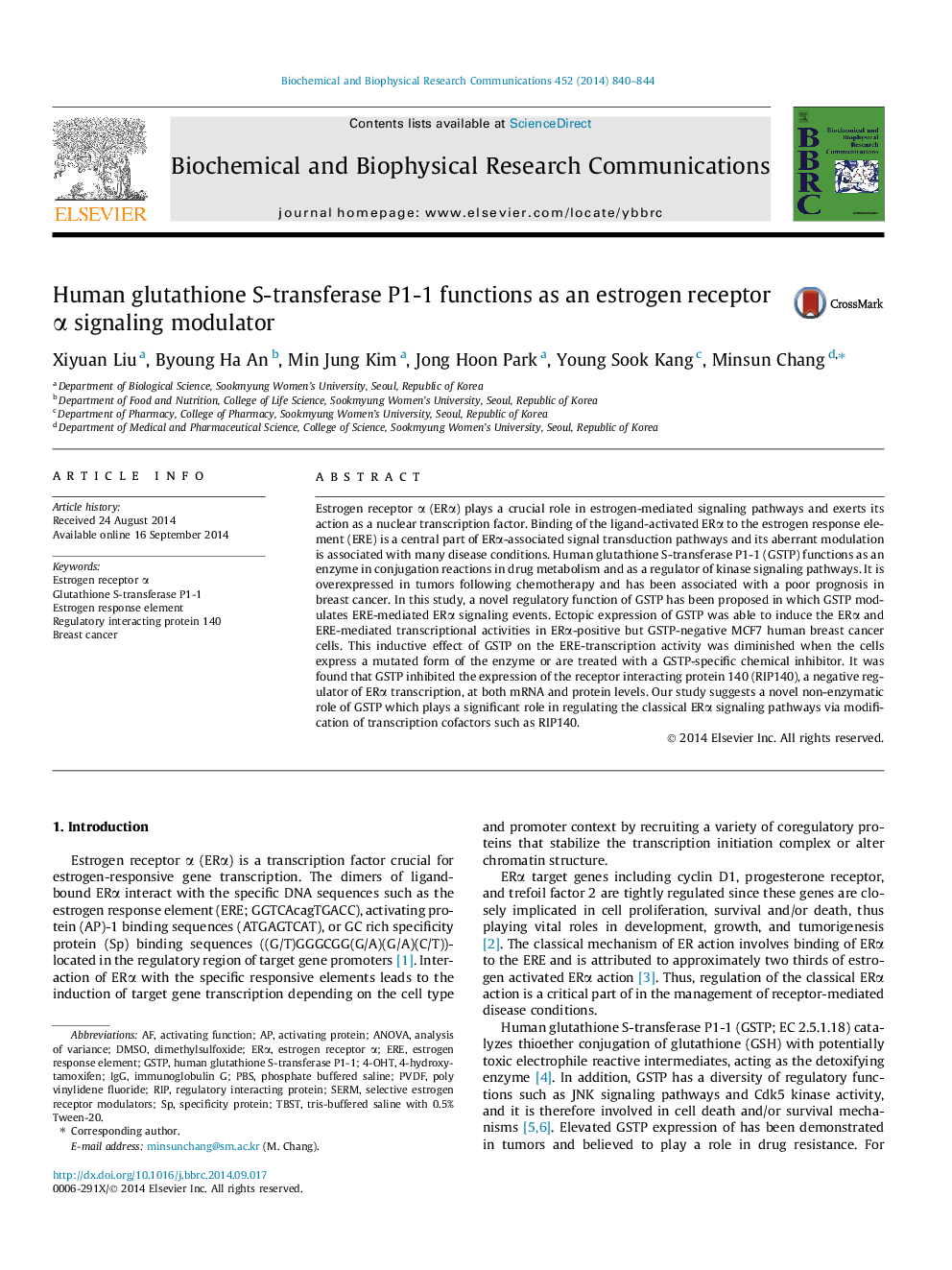| Article ID | Journal | Published Year | Pages | File Type |
|---|---|---|---|---|
| 10753956 | Biochemical and Biophysical Research Communications | 2014 | 5 Pages |
Abstract
Estrogen receptor α (ERα) plays a crucial role in estrogen-mediated signaling pathways and exerts its action as a nuclear transcription factor. Binding of the ligand-activated ERα to the estrogen response element (ERE) is a central part of ERα-associated signal transduction pathways and its aberrant modulation is associated with many disease conditions. Human glutathione S-transferase P1-1 (GSTP) functions as an enzyme in conjugation reactions in drug metabolism and as a regulator of kinase signaling pathways. It is overexpressed in tumors following chemotherapy and has been associated with a poor prognosis in breast cancer. In this study, a novel regulatory function of GSTP has been proposed in which GSTP modulates ERE-mediated ERα signaling events. Ectopic expression of GSTP was able to induce the ERα and ERE-mediated transcriptional activities in ERα-positive but GSTP-negative MCF7 human breast cancer cells. This inductive effect of GSTP on the ERE-transcription activity was diminished when the cells express a mutated form of the enzyme or are treated with a GSTP-specific chemical inhibitor. It was found that GSTP inhibited the expression of the receptor interacting protein 140 (RIP140), a negative regulator of ERα transcription, at both mRNA and protein levels. Our study suggests a novel non-enzymatic role of GSTP which plays a significant role in regulating the classical ERα signaling pathways via modification of transcription cofactors such as RIP140.
Keywords
4-hydroxytamoxifenGlutathione S-transferase P1-14-OHTGSTPSERMERαTBSTEREPBSPVDFIgGDMSOimmunoglobulin Ganalysis of varianceANOVADimethylsulfoxideBreast cancerestrogen response elementPhosphate buffered salineactivating proteinactivating functionSelective estrogen receptor modulatorsRIPspecificity proteinPoly vinylidene fluorideEstrogen receptor α
Related Topics
Life Sciences
Biochemistry, Genetics and Molecular Biology
Biochemistry
Authors
Xiyuan Liu, Byoung Ha An, Min Jung Kim, Jong Hoon Park, Young Sook Kang, Minsun Chang,
